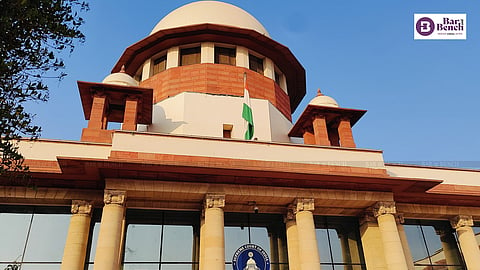
- News
- Columns
- Interviews
- Law Firms
- Apprentice Lawyer
- Legal Jobs
- हिंदी
- ಕನ್ನಡ

The Supreme Court on Tuesday set aside a Gujarat High Court order that allowed the quashing of a rape case based on an 'amicable settlement' between the parties [XYZ v State of Gujarat and anr].